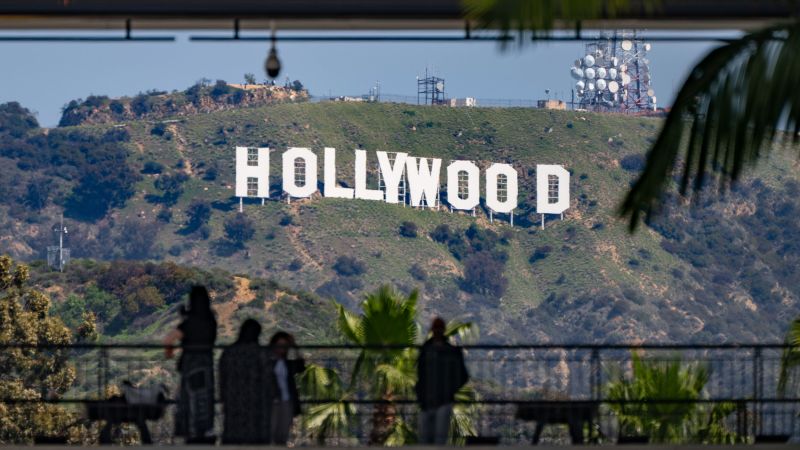President Donald Trump’s recent declaration advocating for a 100% tariff on films produced outside of the United States has sent shockwaves throughout the entertainment industry. Filmmakers and financial executives in Hollywood were left perplexed by the announcement, with many questioning the potential consequences of such a drastic measure. The fear is that this proposal could have a devastating impact on an industry that has been a central part of American culture and economy for decades.
Several executives from movie studios and streaming services expressed their bewilderment when speaking with CNN. They opined that Trump may not have fully considered the ramifications of his proposition. As one industry insider pointed out, the enforcement of such a tariff would be far from simple. “On first blush, it’s shocking and would represent a virtually complete halt of production,” they remarked. Yet, they highlighted that the complexities surrounding movie production and distribution would make it nearly impossible to implement such a policy effectively.
In contrast to the concerns raised by industry insiders, some individuals perceive Trump’s proposal as an opportunity to address a genuine issue known as “runaway production.” This term refers to the phenomenon of film and television projects migrating to countries that offer more attractive tax incentives. While some see a value in sparking dialogue on this matter, the overwhelming consensus suggests that they view Trump’s proposal with skepticism, suspecting that it is more about political posturing than viable policymaking.
The reaction on Wall Street reflects the uncertainty in the entertainment sector following Trump’s announcement. Shares of major companies, including Netflix, experienced a noticeable decline as investors attempted to make sense of the implications of the president’s comments. Lightshed Ventures partner Rich Greenfield remarked that Hollywood professionals were left “scratching their heads” over the implications of Trump’s statements on social media.
One of the critical concerns outlined by industry experts is the classification of movies. Given that films are categorized as a form of intellectual property rather than goods, the traditional economic concept of tariffs may not necessarily be applicable. The foreign production of films and the notion of taxing films based on their production locations raises numerous legal and logistical questions. Furthermore, many industry insiders doubt that Trump’s characterization of foreign film production as a “national security threat” would hold up under legal examination.
While Trump’s declaration may have sparked an array of reactions, the industry appears to be taking the proposal seriously. Executives have reportedly reached out to Commerce Secretary Howard Lutnick, and in a recent response, Lutnick acknowledged the situation, stating that they were addressing the tariff demand.
Interestingly, the communication from the White House indicated that while no definitive decisions had been established regarding foreign film tariffs, the administration was exploring various options. This notion of reviewing “all options” has somewhat calmed industry fears, as many Hollywood lobbyists have advocated for federal tax incentives instead of punitive measures.
The evolution of movie-making has seen a shift away from the bustling studios of Hollywood toward locations offering advantageous financial incentives. Variety, a notable entertainment trade publication, highlighted that a range of films – from independent titles to major blockbusters – are increasingly produced in countries like the U.K., France, and Germany. This trend has drawn criticisms regarding the future of domestic production.
During a brief press interaction, Trump understated the complexities of the film industry when he voiced concerns about foreign nations “stealing” American cinematic capabilities. He suggested that a tariff on imported movies would protect the industry, yet many industry professionals questioned whether he grasped the intricacies of modern productions. Notably, questions arose surrounding how movies partially filmed in the United States would be classified under this proposed regime.
Amidst the maze of uncertainties, multiple executives pondered whether this initiative was aimed at international rivals such as Canada. Given that many films are produced in Canada due to favorable tax conditions, there is speculation about the motivation behind targeting foreign productions. Comments were also made about whether the announcement was a form of trolling against Hollywood’s generally left-leaning demographic.
As conversations continue and speculation swirls, the fundamental challenge remains: navigating the complex world of global film production in an increasingly fragmented economic landscape. As the industry grapples with these developments, it is clear that the proposed tariff has opened a can of worms, leading to more questions than answers, and leaving the future of American film in a precarious state.



